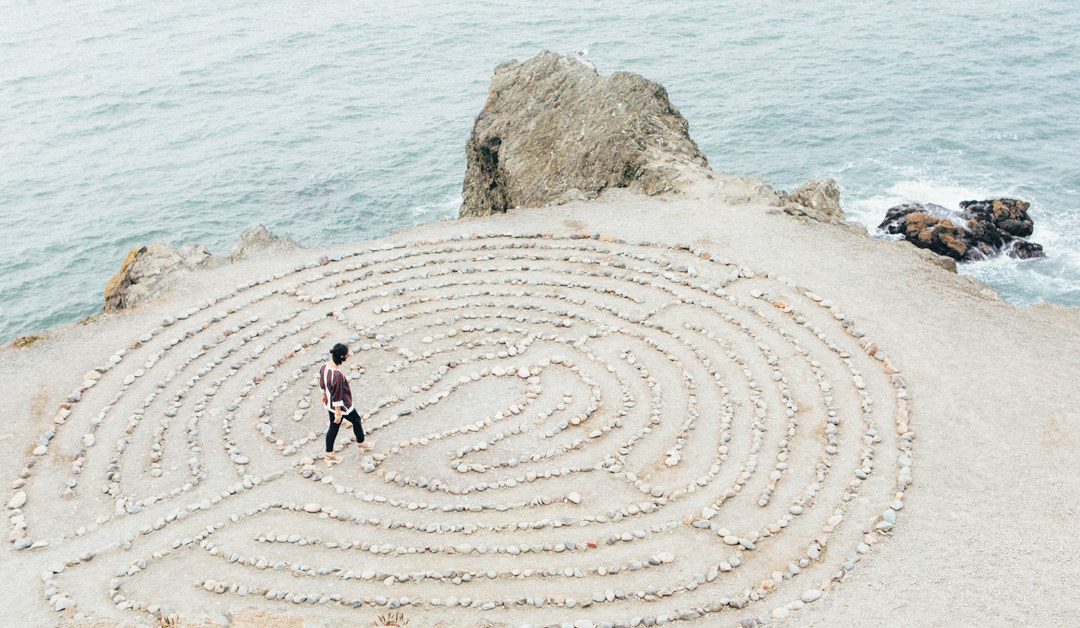Finding our inner calm and peace can be difficult in a world full of noisy distractions. Participating in a silent retreat allows us to take the time and make space to hear our own thoughts, gain clarity and understanding, and deepen our relationships with ourselves and others. We are then invited to carry the benefits of silent retreats into our everyday lives.
What is a Silent Retreat?
A silent retreat is an invitation that encourages us to pause, to embrace the silence as we journey inwards with a beginner’s mind. Silent retreats are often designed with the intention of facilitating mindfulness, loving-kindness practices, connection with our authentic self, and personal transformation. A silent retreat may be done alone, or with a small or large group of people under the guidance of trained teachers. It may last several hours or up to several months. These retreats can even be done virtually in the comfort and safety of our own homes. The guidelines for communication vary from event to event. Some retreats encourage journaling and include designated times for mindful conversation or asking questions of teachers. Others may ask attendees to refrain from any speech, reading, or writing for the duration of the retreat. Often, the day includes a blend of guided meditation, silent practice, movement, sense and savor walks, mindful eating, loving-kindness practice, as well as group teaching and discussion.
The quieter you become, the more you are able to hear.
Rumi
Who Should Attend a Silent Retreat?
You do not have to be an expert at meditation or practice Buddhist principles to participate in a silent retreat. Silent retreats are for people from all walks of life and are inclusive of age, gender identity, sexuality, ethnicity, etc. Additionally, most retreats are not faith-based but some can be. Silent meditation can benefit anyone who would like to experience the present moment and be free from the distractions with which we are continually bombarded in our daily lives.
Why Attend a Silent Retreat?
When we cut ourselves off from social chatter and the endless flow of notifications coming from our phones and computers, we are given the opportunity to redirect our attention inward. We can notice our thoughts and process them in a constructive way. Depending on the person, it can take up to several days in a silent, supportive environment for the mind to settle so that deep calm, clarity, and awareness become accessible. Once we have gone “offline” and the mind has settled, the knowledge and insights we gain can be integrated into daily life after the retreat. A 2018 review of studies published by BioMed Central Complementary and Alternative Medicine found that the health benefits of silent retreats, including positive effects on chronic diseases and mental health issues, extended for up to five years after the retreat was attended.
How Will I Benefit from a Silent Retreat?
The specific benefits of a silent retreat will be different for each person though there are many commonly experienced improvements to mental health:
Reducing Stress and Anxiety
Simply being away from our day-to-day responsibilities and frustrations for a while will bring down our stress level. At the same time, a silent retreat also gives us the opportunity to dive deeply into mindfulness, where we may gain perspective and insight that will stick with us when we return to our daily life. Our ability to be present and focused will help us resolve problems more effectively, reducing our stress and anxiety.
Improving Relationships
Deliberately exploring our own minds for an extended period of time allows us to get to know ourselves better. We may discover what it is that we have been pushing away, and what brings us joy. When we know ourselves more deeply, we can better hold ourselves in loving-kindness. As we gain clarity and experience a calmer mind, we will be able to respond to ourselves and others rather than react, and we will express more empathy and compassion. We will also be able to express our needs clearly and with kindness.
Accelerating Personal Development
The opportunity to focus on our own thoughts, emotions, and needs without the distractions of our daily lives can provide a launchpad for achieving our personal development goals. Mindful meditation practice enhances self-confidence, reduces anxiety and depression, and helps to integrate the different parts of the brain and mind. Intensive, prolonged mindfulness practice, such as a silent retreat, can have a pronounced, long-lasting effect on a person’s mindset and approach to life.
Boosting Resilience
The busyness of our lives often distracts us – intentionally or unintentionally – from distressing thoughts and feelings. When these distractions are removed, we might feel extremely uncomfortable as they are poles for our attention. But by sitting in silence with our thoughts and feelings, we can learn to manage them. We can accept and work through our discomfort. The next time we are faced with uncomfortable emotions or sensations in our daily lives, we can respond mindfully instead of getting derailed and caught up in them. Emotions no longer overpower us; we begin to meet and befriend our feelings, and in the process, come to better understand ourselves.
Experiencing a Silent Retreat
Silent retreats provide a unique, supportive environment where it is possible to dive deeply into our own minds without the stress and distraction of our everyday lives. The clarity, insight, healing, and inner peace available through these experiences can last far beyond the retreat itself, changing our lives for the better.
Photo by Ashley Batz

